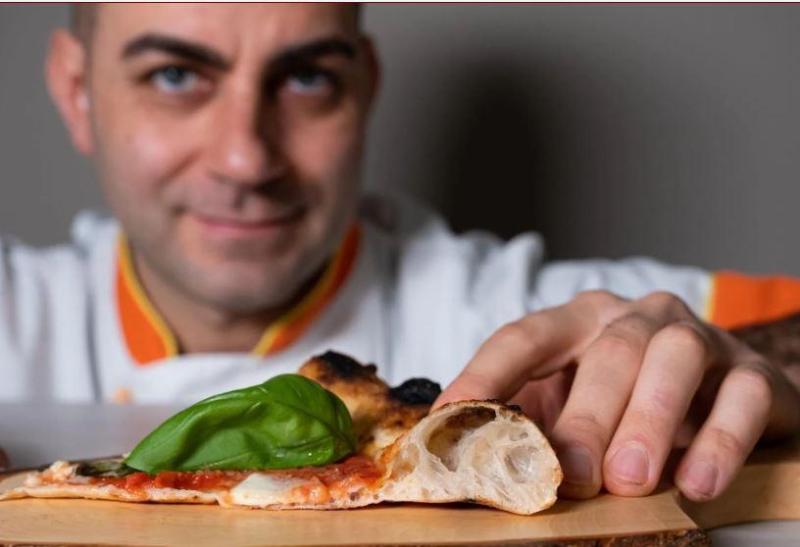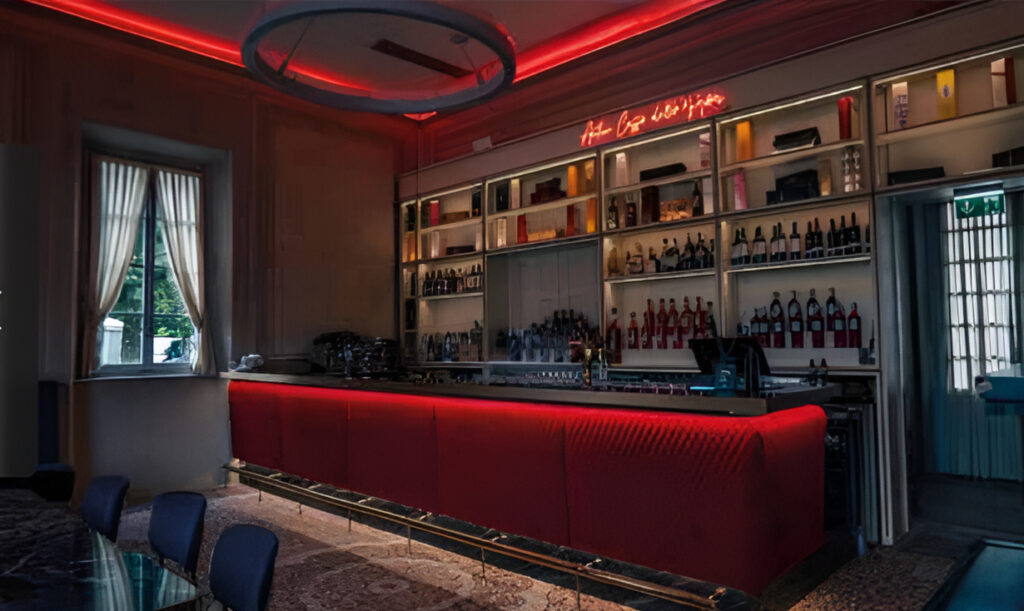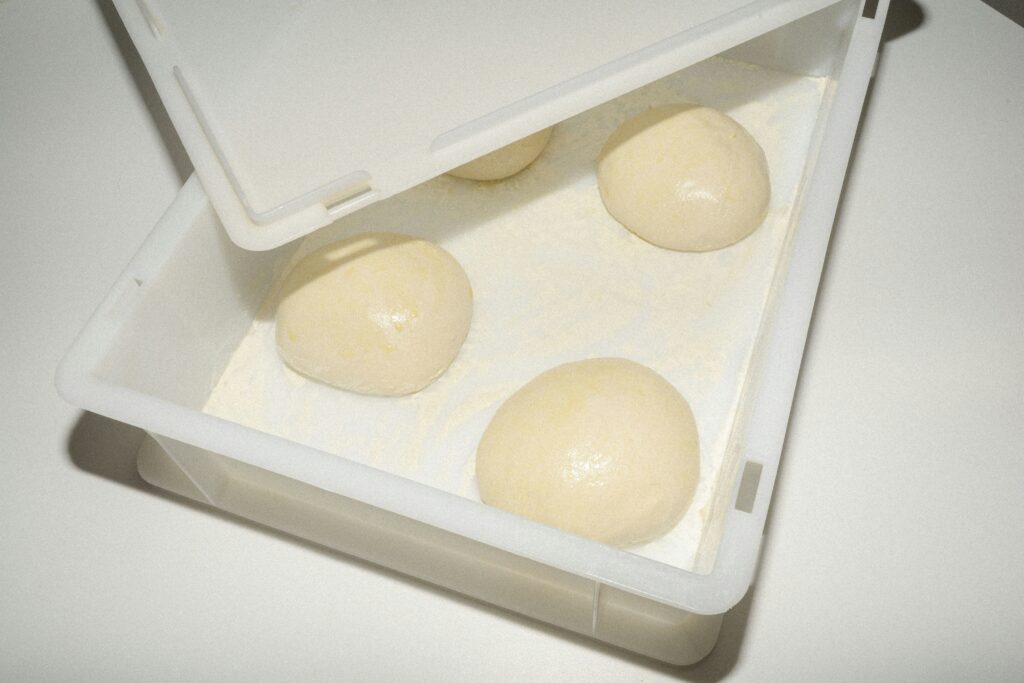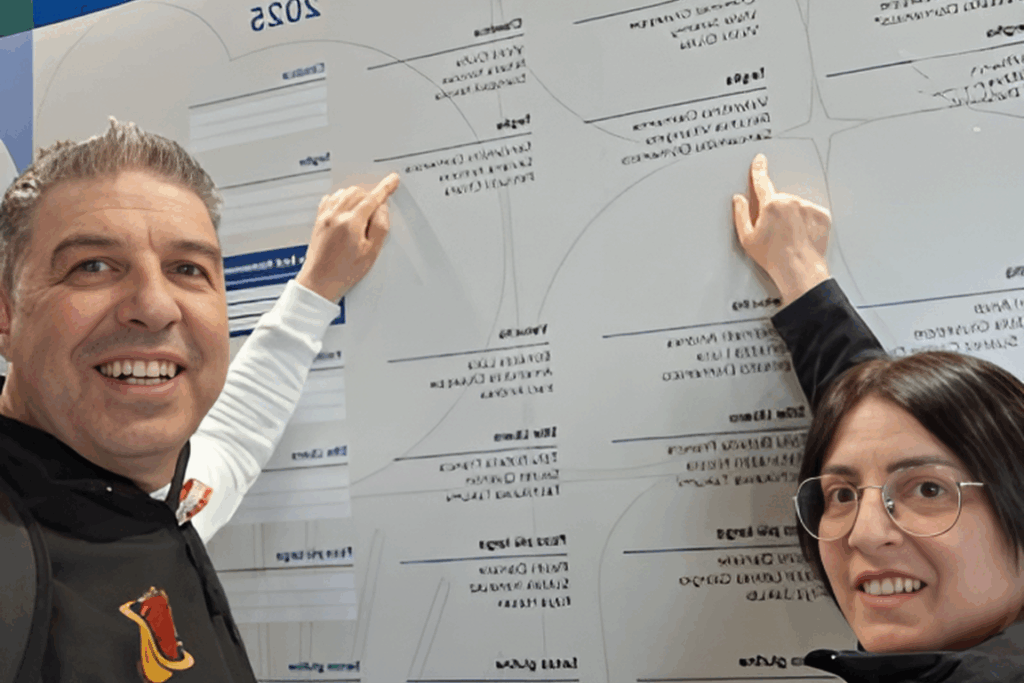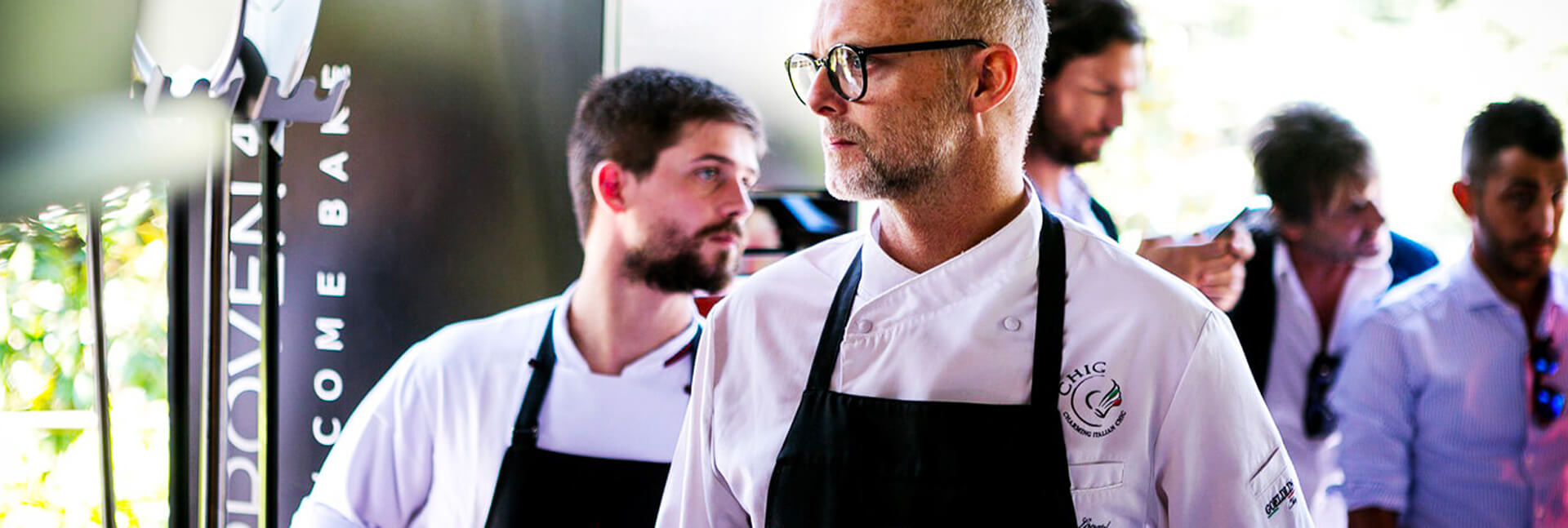
Denis Lovatel is an innovative pizza maker from Alano di Piave. Let’s find out how he is helping to transform the world of pizza.
I met Denis a few years ago, thanks to a simple, common suggestion: “go visit him because he works well”. In fact, this around forty year old family pizzeria intrigued me a lot, being isolated in a small town like Alano di Piave, as delightful as it is out of the way compared to any destination. Thinking about it, being located in the shadow of Monte Grappa, Alano di Piave is ten minutes away from the Prosecco Hills, UNESCO heritage, and from Valdobbiadene, the nerve center of Italian bubblies, as well as five minutes away from the fascinating, ancient paper mill of Vas.
Enchanting and magical places for different reasons; therefore, wherever you are within a reasonable number of kilometers, it is absolutely worth coming here. And why not, maybe you could stay in one of the bed and breakfast comfortable rooms of the Lovatels’ property, taking the opportunity to take a tour in the surroundings. Last summer, for example, Denis took over the management of Malga Domador at the foot of Col dell’Orso, a wonderful place in the middle of nature where there is no phone signal; you can reach it by car, but is best to reach it by a long walk. Here, he makes an exquisite pizza in pala on a wood-burning stove (electricity coming only from a generator for the most urgent needs) and offers local products such as sausages and cheeses, the latter often made under the supervision of the cheese-makers of the Malgas (alpine summer pastures).
Since the beginning of the year, between alternate closures and contingent difficulties sadly the catering world knows well, Lovatel has been organizing a weekend delivery activity covering even quite distant areas from Alano di Piave. In this case, customers receive a pre-cooked pizza in pala, made with semi-integral type 2 flour; after being heated, it is delicious. Take-away customers instead can enjoy “his” pizza, the one that makes people talk and that divides Neapolitan purists from pragmatic lovers of a wider concept of pizza; that in addition to the classic timeless Neapolitan pizza, which became UNESCO heritage thanks to the art of its masters, just like the Prosecco hills mentioned earlier. In this regard, it is worth inserting a brief aside that helps to clarify (it would be very difficult to solve it) a long-standing dispute. In Veneto Region – like it or not – people like Simone Padoan, Renato Bosco and Denis Lovatel have literally invented a new concept of pizza that achieved success and recognition throughout the country. But how is Denis Lovatel’s pizza, made with the dough inherited by his father Ezio – who was first cook and then pizza maker – and created in the last century? As already mentioned, it’s hard to take a neutral stance on Denis’ tonda crunch, deeply convinced as I am that this pizza is a product you either love or hate. It never loses its crispness and it is made with loaves that do not exceed 180 grams; it is thin and compact, stuffed like an haute cuisine dish and topped with painstaking care.

A few years ago he came up with the idea of identifying the crunchy note of his pizza with a musician, discovering that it was a G sharp. Manager during the week and pizza maker on the weekend, Denis is an exquisite person who for years has shuttled back and forth between Milan and Alano di Piave, between business trips abroad and mountain climbing. An unstoppable man, who thinks as an entrepreneur and has that pure soul coming from his connection with the mountains, an inner strength pushing him to discover, always. That’s why, first among pizza makers, he created the In-fusioni project, in which his pizzas are stuffed by great chefs, one per month for a year. One of them is the Pu’er, which is stuffed with fiordilatte, baked Jerusalem artichokes, black cabbage chips and juice, and Pu’er tea infusion; this pizza was judged by Gambero Rosso as the best tasting pizza in 2017. And that’s not all, because in 2020 the same guide awarded his pizza Rivoluzione Vegetale (Vegetable Revolution) as the best pizza of the year. What does this new proposal by the mountain pizza maker consist of?
Denis is increasingly oriented towards the theme of sustainability not as a slogan but as good practice; as proof of his commitment, he was the first Italian and pizza maker to be called by Jp Mc Mahon to participate in Galway, Ireland, in the international congress Food on The Edge, a symposium that every year involves some of the biggest names of international haute cuisine.
As for this particular pizza, Lovatel started from the idea of using vegetable proteins instead of animal ones. So, why not imagine an alternative to a classic pizza like bresaola, arugula and Grana cheese flakes? So here is a watermelon Carpaccio, flavored with mountain spices and barbecued oil that gives light, non-invasive smoking. However, do not imagine watermelon as it is usually consumed, because it is processed with a technique involving long cooking at low temperature and a complex dehydration process. This technique was created by Andoni Luis Aduriz of Mugatitz restaurant and it was perfected with the help of Andrea Rossetti, a chef from Padua who came back to Italy after a period spent with Alex Atala at D.O.M., in Brazil. Finally, add thyme and rosemary in osmosis and the result is really surprisingly similar to meat, as much for its texture as for its appearance, not to mention the taste which is very easy to confuse.

The processed watermelon is placed on a white base with fiordilatte cheese, curly escarole instead of arugula, crispy Grana Padano cheese chips, chopped almonds and gialet bean hummus, an excellent product from the Valbelluna. For Denis, “it aims to raise people’s awareness of the enormous environmental impact of large-scale production. Pizza is probably the best known food in the world; thanks to this new dimension, it could really become part of a message to protect the environment and biodiversity.”
However, for Lovatel, this doesn’t mean turning his pizzeria vegetarian, but rather looking as far as possible for healthy fillings that don’t come from intensive breeding and that respect the times and products of nature.
So this researcher-pizza maker (although the term now seems reductive) continues to explore and try his hand at studying methods of preservation and waste reduction such as fermentation, supporting small local farms and discovering the world of mountain spices and herbs. Plus, he has a secret wish that – as far as I know him – is bound to come true: “One day, I would like to control my own small production chain. For example, I now take fiordilatte from Agerola, but during summer it often arrives in not so optimal conditions and I would like to have a product that is always at its best. So I plan to be able to make everything myself, including a small self-production of mozzarella cheese, maybe using milk from animals pasturing here on Mount Grappa.” And I’m sure the mountain pizza maker won’t stop there.
